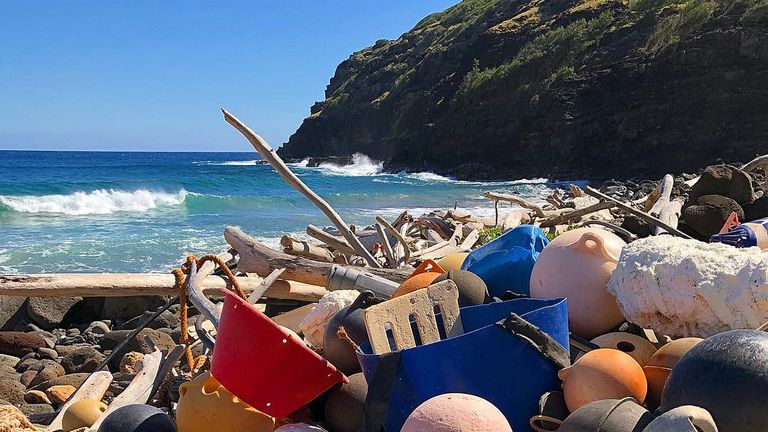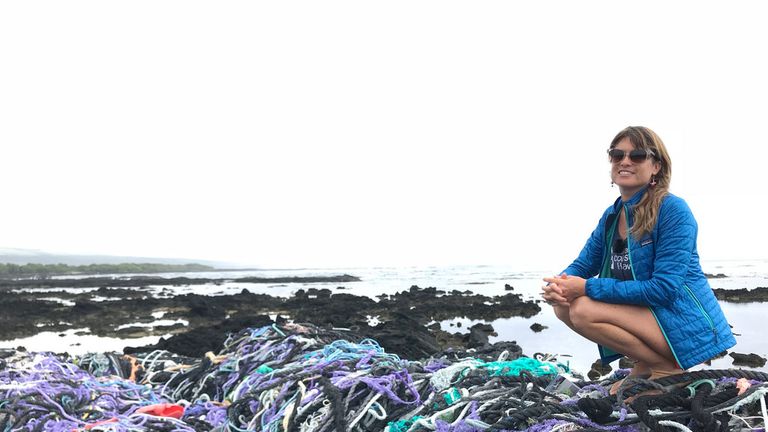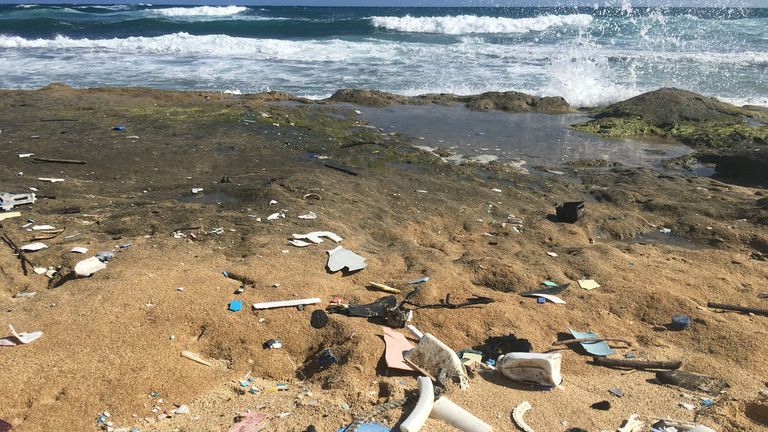Degrading plastics 'release greenhouse gases', study shows
Researchers in Hawaii have found some common plastics release methane as they break down, which effectively warms the atmosphere.
Thursday 2 August 2018 11:41, UK
Common plastics are releasing greenhouse gases into the atmosphere as they degrade, a new study has shown.
Greenhouse gases have a direct impact on climate change and have been previously linked to changing sea levels, increasing global temperatures, drought and erosion.
The research, carried out by the University of Hawaii's Manoa School of Ocean and Earth Science and Technology (SOEST), discovered that methane was released as the plastic is broken down.
Methane is a greenhouse gas that absorbs more of the sun's heat, effectively warming the atmosphere.
Researchers discovered that most common plastics begin to release harmful greenhouse gases when they are exposed to sunlight.
The plastics studied are used to create a variety of everyday items such as food storage, textiles, constructions materials and a range of other goods.
Polyethylene, which is commonly used in plastic bags, was responsible for producing the greatest amount of the greenhouse gases.
David Karl, author of the study and a professor at SOEST, said: "'Plastics represent a source of climate-relevant trace gases that is expected to increase as more plastic is produced and accumulated in the environment."
This newly discovered source of methane has not been factored into global estimates and could prove to be significant in future predictions.
It comes amid increasing concerns about the growing volume of plastics in the world's oceans.
Lead author of the study, Sarah-Jeanne Royer, said: "Considering the amounts of plastic washing ashore on our coastlines and the amount of plastic exposed to ambient conditions, our finding provides further evidence that we need to stop plastic production at the source, especially single use plastic."
:: Sky's Ocean Rescue campaign encourages people to reduce their single-use plastics. You can find out more about the campaign and how to get involved at www.skyoceanrescue.com





